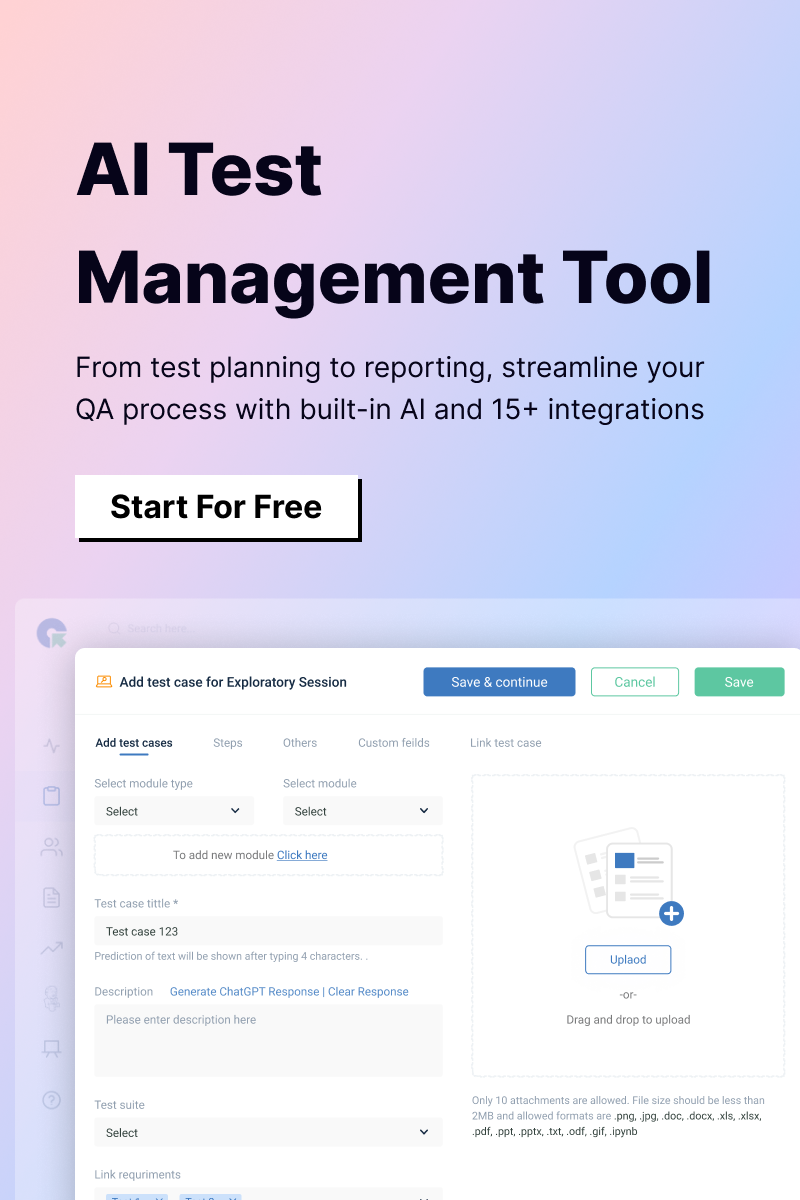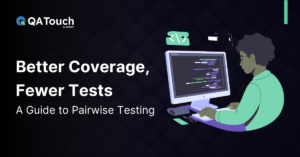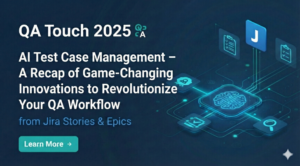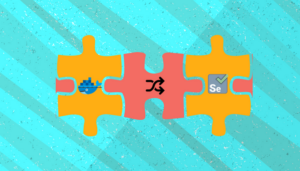Henry Ford Quotes about learning is Anyone who stops learning is old, whether at twenty or eighty. Anyone who keeps learning stays young. The greatest thing in life is to keep your mind young. Learning new things is a growth mindset. As a Leader, you have to have a growth mindset. Learning is a continuous process and never stop learning.
Testing is Adaptive. Knowledge is Secondary
Testing is one of those fields that refuses to stand still. What felt innovative three years ago might already feel outdated or irrelevant today. The pace of change is faster new frameworks, CI/CD pipelines, AI driven tools, and evolving expectations around quality keep shifting what “good testing” is.
Continuous learning is what helps you stay grounded in that change. It is not just about picking up new tools or certifications, it is about shifting how you think about testing itself.
A few years ago, automation was seen as the end goal. Now, we are talking about test intelligence, risk based testing, AI powered testing, and integrating QA directly into the product lifecycle. The role of a tester is not confined to validating functionality anymore it is to predict failure, analyze patterns, and help shape decisions that reduce risk before development starts.
When you keep learning, you stop chasing trends and start understanding why they matter. You are no longer just following what is new, you are learning how each change fits into the bigger picture of quality and user trust.
Learning Deepens Your Curiosity
Good testers are naturally curious. Great testers never stop feeding that curiosity. Each new concept or failure teaches you something – how systems behave, how users think, or how one missed edge case can lead to a real time issue.
Continuous learning turns testing from a task into a mindset.
One thing that sets great testers apart is not their technical skill. It is their curiosity. The best testers don’t stop at “it works”. They ask, “What happens if it does not”? or “Why does it work this way?”
Continuous learning fuels that curiosity. Every new concept you explore, whether it is an automation framework, an API integration, or even a bit of UX design, gives you fresh lenses to look at problems. You start to notice patterns that others might miss.
For example, when you learn about performance testing, you stop thinking only about “does it load”? and start thinking “how does it handle stress over time”? When you explore usability, you begin spotting the small friction points that frustrate real users, things that automated scripts can not catch.
The more you learn, the more questions you ask and the better those questions become. Curiosity turns into insight, and insight turns into better testing.
Learning is about staying open enough to keep discovering what you don’t know yet.
It Bridges the Gap Between Testing and Business
As you grow, you realize testing is not only about finding bugs, it is about protecting user trust and business value. Learning how the product fits into the bigger picture helps you test smarter. You stop focusing on “what broke” and start asking “what is most important to the user?”
Be Persistent in Learning
Persistence is the key to the success of a tester. Never look for an excuse or a way out to achieve something. Persistent people always stand out from the crowd and are self motivated. What keeps highly persistent people going is their powerful level of desire.
Plan and schedule all your activities. Review the schedule at the end of the day. Take good rest to bounce back and work. Darius Foroux, rightly said in his book Do it Today as “ I don’t want ups and downs because that hurts productivity. Instead, I want to progress 0.1% every day of the year.” It is doable.
Stay Motivated to Meet Your Learning Goals
Motivation is the driving force behind meeting your goals. Visualize your goals.
Accept your mistakes. Break down your vision into multiple small goals.
Compete with yourself. We should not compare ourselves to anyone else. Always make an effort to become a better person who was yourself last year.
Cultivate Your Reading Habit
Reading is important since it develops your mind and showers you with abundant knowledge and lessons of life.
Readers are Leaders!
But successful people don’t just read anything. They are highly selective about what they read, opting to be educated over being entertained. They believe that books are a gateway to learning and knowledge.
Learning Builds Confidence and Credibility
In testing, no two projects will be the same most of the time. One sprint, you are working on a mobile app, the next, you are diving into APIs, performance, or AI-driven testing tools. The landscape keeps changing, and that can feel overwhelming if your skills remain stagnant.
Continuous learning changes that. It builds a quiet confidence. That comes from knowing you can figure things out even if you have not done them earlier. You will start seeing new tools or processes not as blockers, but as opportunities to grow.
That adaptability will become your biggest strength. When a new framework rolls out or a tech stack changes, you don’t need to panic, you can start exploring. You ask the right questions about the new changes. You will be able to correlate what you already know and what you are learning. You will be able to understand that having all the answers by yourself and you can learn your way around from the team and the community.
Learning Expands Your Value Beyond Testing
The more you learn, the more your role naturally grows more than finding bugs. You start to see how testing connects to product decisions, user experience, performance, and even business outcomes.
When you understand design, you can give feedback before the code is written. When you know how APIs or CI/CD pipelines work, you can collaborate more effectively with developers. When you learn a bit of analytics or customer behavior, you start seeing patterns that point to the user scenario risks before users ever face them.
You won’t be “the tester who finds defects” and become “the person who helps the team build better products”.
Continuous learning turns you into an extension of someone who can speak the language of developers, product managers, and users. It helps you connect technical accuracy with the business impact.
You Learn to Learn Faster
The more you learn, the better you get at learning. Instead of getting overwhelmed when new tools or technologies arrive, you adapt quickly. The mindset shift from “I don’t know this, but I will figure it out is a great skill in testing
Be Part of Testing Communities
Being part of the testing community has brought out the best in me. Earlier, I was a passive learner and learned many things from my fellow community members.
I started contributing back to the community, which helped to grow my knowledge as well as brought fulfillment.
It Keeps You Passionate
Testing can become repetitive if you are doing the same things every sprint. Learning something new, even outside testing, keeps your interest alive. It reminds you why you chose this craft in the first place.
You Evolve From Tester to Problem Solver
Continuous learning broadens your view. You stop thinking in terms of “pass” and “fail” and start seeing the bigger picture, risks, usability, scalability, and user experience. You become someone who improves the product, not just verifies it.
Keeps You Inspired
Testing can sometimes feel like an endless loop, sprints keep coming, deadlines stack up, and the same cycle of builds, bugs, and fixes keeps going. After a while, it is easy to lose the excitement that made you love testing earlier.
Here, continuous learning helps. Every time you try something new, a fresh testing approach, a smarter way to automate, or even a different perspective from another tester, it reminds you that this field never stands still, and neither you.
Learning keeps the tasks interesting. It turns daily tasks into opportunities to grow. You will notice and celebrate the small wins, a new tool you figured out, a hard to replicate issue solved, or a bug caught before it reached production.
Continuous learning does not make you a better tester, it keeps you curious, grounded, and motivated to keep improving, one step at a time.
Tools will change, frameworks will come and go, but your mindset, your willingness to learn, unlearn, and adapt, is what will always set you apart. The day you stop learning is the day testing starts to feel routine.
Happy Learning! Happy Testing!!
QA Touch is an effective test management platform that stands out for its combination of test management and AI-driven insights, offering both power and simplicity in one platform.
Ready to bring AI into your QA workflow? Sign up for free today.










